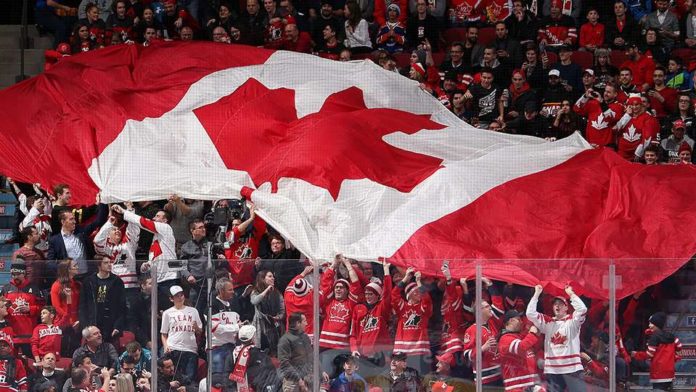A St. Thomas University sociology professor says if New Brunswick really wants to protect the community from the toxic nature of hockey culture, it should not co-host the World Junior Ice Hockey Championships later this year.
“The best way to protect communities against the world junior tournament is to not host it,” said Kristi Allain, who researches sports culture. “It’s an expense for the community and it’s clear that it’s also a hazard for the community to host these tournaments.”
Two women have accused Team Canada players of gang rapes at the 2003 and 2018 world junior tournaments in London, Ont. and Halifax. Since Hockey Canada’s decision to pay off and silence complainants came to light in the spring, pressure has mounted for change at the national governing body for the sport.
The resignation of Hockey Canada’s board of directors, including CEO Scott Smith, on Oct. 11, only emphasized the insular nature of hockey culture, according to Allain.
Neither Hockey New Brunswick nor the New Brunswick government has given any indication of not going ahead with world junior games in Moncton.
Allain said anyone who watched as Hockey Canada deny all culpability for its handling of sexual assaults to the bitter end can see how systemic and deep the racism, sexism and other toxic traits of hockey culture go.
“For anyone who’s paid even a little bit of attention to junior hockey in Canada, these actions shouldn’t have at all been surprising,” said Allain. “You can’t expect the people who broke the system to be the ones that fix it.”
Allain said diversity and inclusion need to be front and centre both on the ice and off it with decision-makers, such as the new appointments to Hockey Canada’s board of directors.
In a CBC radio interview this week, Hockey New Brunswick executive director Nic Jansen announced plans for hiring experts with the goal of making the game more inclusive, including the recent hire of Normand Hector, a Black drag queen, who will lead equality, diversity and inclusion workshops.
Infopowered Solutions Inc., an HR management firm, will also work with University of New Brunswick law students to handle investigations for the provincial organization. Jansen said the organization has been overwhelmed by investigations into incidents of discrimination.
“In total we got 29 allegations, 15 of which resulted in suspensions, and it was a significant challenge for our organization to investigate these 29 allegations,” Jansen told CBC’s Information Morning Fredericton.
The insular nature of Hockey Culture is established in young hockey players early, according to Allain.
“I had a parent of a 10-year-old boy tell me last year that when she asked him at the dinner table to tell her what happened in the locker room after a game her son had participated in,” said Allain.
“He told her that he couldn’t tell her — that the coach told him that it was a secret.”
Young hockey players with dreams to go to the NHL move to different communities across the country to enter the junior hockey system, which completely alienates a player from their parents. Allain believes that this system may need to change to reform hockey culture.
“We have to ask critical questions about whether this is the best way to produce good people,” she said, “and perhaps it’s not. In which case, we would have to rethink entirely the way the Canadian Hockey League is structured.”
This article was published in partnership with the Local Reporting, Global Media class at St. Thomas University and The Aquinian, St. Thomas University’s official student publication.

